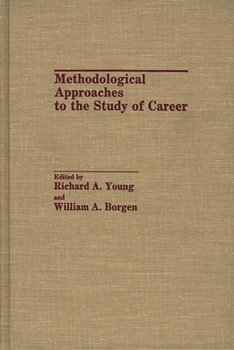Methodological Approaches to the Study of Career
This volume addresses a wide range of methodological approaches to the study of career with particular emphasis on alternative approaches. The contributors challenge those who see the traditional positivist empirical methodology as the only appropriate methodology with which to address important career questions and issues, arguing instead that the subject of career can best be studied within a number of disciplines, and using a variety of methodologies. Among the alternative methodologies explored by the contributors and employed in studies reported in this volume are those based on contextual/systems research, human action inquiry, and phenomenological/hermeneutical research. These alternatives, the contributors assert, are more responsive to human experience and social issues and are, therefore, often more viable for the study of career and career-related issues than is the positivist approach. Researchers in educational psychology, counseling psychology, and human resources will find this book an important contribution to the professional literature.
Divided into three parts, the volume begins by identifying a number of specific questions--involving terminology, assessment, samples, culture, and outcomes--that contribute to the complexity of career research. Part two contains seven chapters, each of which addresses a generic research approach relevant to research in the career area. Both epistemological issues and the specifics of methods and techniques are addressed in these chapters. Among the approaches covered are Vondracek's developmental-contextual approach to career development research, narrative approaches, and the use of ethnography in career education studies. In the third section, the contributors use a range of methodologies to address appropriate topics in the career field, including the impact of parental influence on career choice, the problem of unemployment, midlife career change, and women's career development.Related Subjects
Psychology




